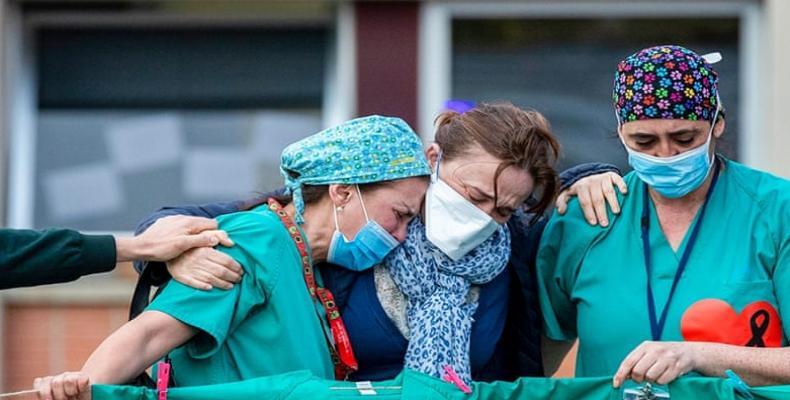
New York, January 29 (RHC)-- Seven in 10 workers on the front line of the coronavirus pandemic are female yet women are left out of many COVID-19 response and recovery plans, according to a global survey published in the United States. The survey, by New York-based women’s rights advocacy group Women Deliver and Paris-based research organisation Focus 2030, gathered the views of 17,000 men and women in 17 countries.
“People around the world recognise that gender equality is an issue of our time and that it is an issue that has been [made] more urgent by COVID-19,” said Phumzile Mlambo-Ngcuka, head of UN Women, at a virtual launch. Eight in 10 respondents said women should be involved in COVID-19 health response and recovery efforts at all levels, including in the development of policies and treatments.
Yet while women account for 70 percent of front-line workers, including in teaching and healthcare roles, the world’s response to the coronavirus crisis has largely failed to include women, researchers found. The poll cited research showing that in 30 countries, women account for just a quarter of decision-makers on COVID-19 response panels that are tasked with determining how to handle the health emergency and its economic fallout.
Just 20 percent of the World Health Organization’s emergency committee members are women, it said, even though “preliminary evidence” revealed response efforts had better results when women are involved. Research by the World Bank and United Nations shows that fallout from the pandemic weighs on women in a host of ways, such as rising levels of domestic violence or lower earnings as some women are forced to cut back on paid work to take on care duties at home.
Mlambo-Ngcuka said the long-term fallout is a concern. “We know that COVID-19 threatens to roll back even the limited and hard-won gains that women have made,” she said.
An additional 47 million women worldwide will fall into extreme poverty — living on less than $1.90 a day — in 2021 because they are over-represented in hard-hit sectors, such as domestic and restaurant workers, according to the United Nations. “We have to demand [that] relief measures are targeted to women and girls,” said Mlambo-Ngcuka.
Eight in 10 people surveyed, men included, believe improving women’s rights is a priority, with that figure rising to 90 percent and higher in Kenya, Mexico, Colombia, South Africa and India. Three in five respondents said tackling gender equality is essential to end poverty and want their governments to do more.
The top priority for respondents is tackling gender-based violence, including online harassment, sexual assault, forced and child marriage and female genital mutilation. Respondents to the poll identified three main drivers of inequality: unequal distribution of unpaid care, different work opportunities and the role of religion and culture.
“This survey shows us where the world has fallen short, but it also delivers the encouraging news that the vast majority of women and men around the world expect their leaders to take action to advance gender equality,” Divya Mathew, senior manager of policy and advocacy at Women Deliver, said in a statement.

